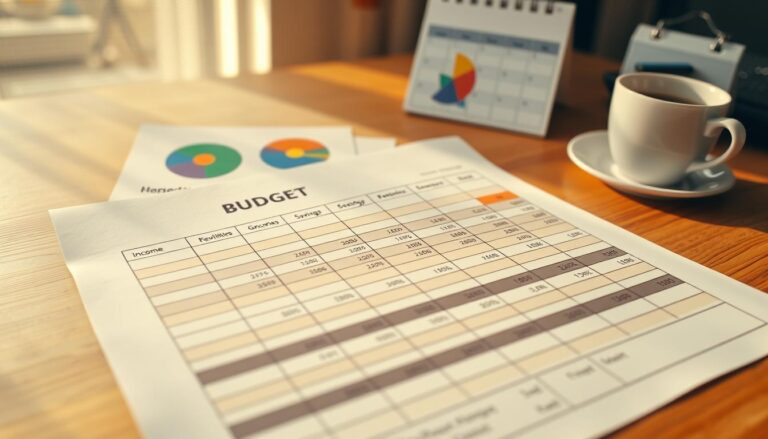The Best Financial Habits to Start in Your 20s
Your twenties are a transformative decade, filled with new experiences and challenges. It’s also a critical time to establish a solid financial foundation. According to Bright Dickson, co-host of Money and Mindset With Bright and Brian, “In your 20s—as you start to learn what it is that you really value—it’s the time to establish money habits that are in line with your values.”
Developing good financial habits early on can have a lasting impact on your financial stability and security. By making informed decisions about your money, you can set yourself up for long-term success. This includes creating a budget, prioritizing needs over wants, and building an emergency fund.
By adopting these habits, you can take control of your financial future and make progress towards your goals.
Why Financial Habits Matter in Your20s
The financial decisions you make in your 20s can set the stage for a lifetime of financial health. This decade is crucial for establishing good financial habits that can lead to long-term stability and success.
Making smart financial choices early on can help you navigate significant expenses, such as student loans, and avoid unnecessary debt. For instance, creating a plan to pay off student loans and avoiding credit card debt are critical steps toward financial stability.
Building an emergency fund is another vital habit to develop. It provides a safety net during unexpected events, ensuring you don’t go into debt when unforeseen expenses arise. Starting these habits early can make a substantial difference in your financial well-being.
By focusing on financial habits to start in your 20s, you’re investing in your future financial security and setting yourself up for success in the years to come.
The Best Financial Habits to Start in Your20s
Adopting the right financial habits in your 20s can lead to a more secure financial future. This decade is crucial for setting the foundation for long-term financial stability. By focusing on the best financial habits, you can make significant strides towards achieving your financial goals.
One of the most important financial habits is paying off high-interest debt, such as credit card balances. If you have student loans, creating a plan to pay them off efficiently can save you money in interest over time. Consider consolidating loans or taking advantage of income-driven repayment plans. For more information on managing debt, you can explore resources that offer guidance on opening a high-yield savings account to maximize your savings.

Saving for retirement might seem premature in your 20s, but it’s a habit that can have a substantial impact on your financial security in the long run. Even small, consistent contributions to a retirement account can add up over time. Take advantage of any employer match on retirement accounts, as it’s essentially free money that can boost your savings.
Building an emergency fund is another critical habit. Aim to save three to six months’ worth of living expenses in an easily accessible savings account. This fund can provide a safety net in case of unexpected expenses or job loss, helping you avoid going into debt.
By incorporating these best financial habits into your daily life, you’ll be well on your way to achieving financial stability and securing a brighter financial future.
Creating and Sticking to a Budget
Budgeting is not just about cutting expenses; it’s about making conscious financial decisions that align with your goals. Developing financial habits to start in your 20s can significantly impact your financial stability.

The first step in creating an effective budget is to track your expenses and identify areas where you can cut back. Common “spending leaks” include dining out frequently, subscription services you don’t use, and impulse buys. By pinpointing these areas, you can make adjustments to allocate your money more efficiently.
Setting Realistic Financial Goals
Setting clear and achievable financial goals is crucial. Whether it’s saving for a emergency fund, paying off student loans, or building up your savings, having specific targets helps guide your budgeting decisions. Start by setting short-term goals and gradually move towards longer-term objectives.
Utilizing online resources and budgeting apps can greatly simplify the process of creating and sticking to a budget. These tools offer insights into your spending patterns and help you stay on track with your financial goals. By combining these tools with a solid understanding of your financial habits, you can make significant strides towards financial stability.
Building an Emergency Fund and Savings Strategy
One of the best financial habits to start in your 20s is creating an emergency fund and a savings strategy. This foundational step can significantly impact your financial stability and security.
Establishing an emergency fund is crucial for being prepared for unexpected expenses. Experts recommend saving three to six months of living expenses. This fund acts as a financial cushion, helping you avoid debt when unexpected costs arise.
Saving for Short-Term Goals
Saving for short-term goals, such as a vacation, buying a car, or moving into a new apartment, requires a dedicated savings plan. Identify your goals and allocate a specific amount each month towards achieving them.

Creating multiple savings buckets can help you organize your savings goals. For instance, you might have separate buckets for emergencies, short-term goals, and long-term investments. This strategy allows you to visualize your progress and stay motivated.
By implementing these strategies, you’ll be well on your way to developing the best financial habits to start in your 20s, ensuring a more secure financial future.
Managing Debt and Building Credit
As you navigate your 20s, managing debt and building credit become crucial financial habits to adopt. This decade is a formative period for your financial health, and the decisions you make now can have long-lasting impacts.
Managing debt effectively is about understanding the types of debt you have and strategizing to pay it off efficiently. This might involve consolidating debts into a lower-interest loan or credit card, or simply creating a plan to tackle high-interest debts first.
Understanding Credit Utilization
Credit utilization refers to the percentage of available credit being used. Keeping this ratio below 30% is generally recommended, as high credit utilization can negatively affect your credit score. For instance, if you have a credit limit of $1,000, try to keep your balance below $300.
Monitoring your credit utilization is crucial because it accounts for a significant portion of your credit score calculation. By keeping your credit utilization in check, you demonstrate to lenders that you can manage your credit responsibly.
Another key aspect of managing debt is negotiating interest rates on your loans and credit cards. Sometimes, simply calling your lender and asking for a lower rate can be effective, especially if you have a good payment history.
Becoming an authorized user on a family member or friend’s credit card can also be a strategy to build credit, provided the primary account holder has good credit habits. This can be particularly helpful if you’re struggling to get approved for credit on your own.
By focusing on managing debt and building credit in your 20s, you lay the groundwork for a healthier financial future. These habits not only improve your credit score but also reduce financial stress, giving you more freedom to achieve your goals.
Investing Early and Consistently
Embracing the habit of early and consistent investing sets the stage for long-term financial success. When you start investing in your 20s, you give your money more time to grow, thanks to the power of compound interest.
Starting Early can make a significant difference. Even small, consistent investments can add up over time. It’s not just about the amount you invest, but also the consistency and timing.
As you start your investment journey, it’s also crucial to consider health insurance options. Having adequate health insurance can protect you from unexpected medical expenses that could derail your financial plans. Research different health insurance plans to find one that suits your needs and budget.
Renter’s Insurance
If you’re renting a home or apartment, renter’s insurance is another important consideration. It can help protect your personal belongings against theft, damage, or loss. Even though it might seem like an additional expense, it’s a valuable safeguard for your financial security.
Disability Insurance Considerations
Disability insurance is often overlooked but is a vital component of a comprehensive financial plan. It provides income replacement if you’re unable to work due to illness or injury, ensuring you can continue to meet your financial obligations. Consider the benefits of disability insurance as part of your overall investment strategy.
Starting to save for retirement in your 20s can also have a huge impact on your long-term financial health. Utilize retirement accounts such as a 401(k) or an IRA to begin building your nest egg. The earlier you start, the more you’ll benefit from compound interest over time.
Consistency is Key. Make investing a regular habit, and you’ll be on your way to securing a stronger financial future.
Conclusion: Your Financial Future Starts Now
Making smart financial decisions in your 20s has long-term benefits. By adopting the right financial habits to start, you can work toward a good credit score, being debt-free, and saving money for retirement and major life milestones.
By creating a budget, building an emergency fund, managing debt, and investing early, you set yourself up for financial success. These financial habits to start will help you navigate financial challenges and achieve your goals.
Take control of your finances today and start building a secure financial future. With consistent effort and smart decision-making, you can achieve financial stability and enjoy peace of mind.






